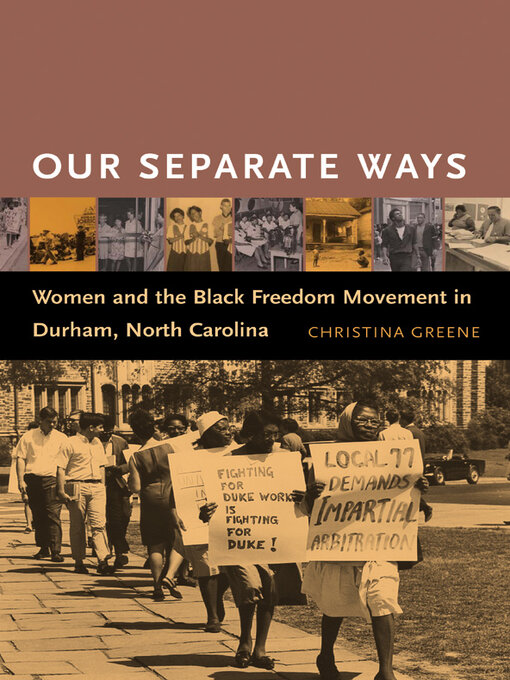Our Separate Ways
Women and the Black Freedom Movement in Durham, North Carolina
Always available
Always available
Greene demonstrates that women activists frequently were more organized, more militant, and more numerous than their male counterparts. They brought new approaches and strategies to protest, leadership, and racial politics. Arguing that race was not automatically a unifying force, Greene sheds new light on the class and gender fault lines within Durham's black community. While middle-class black leaders cautiously negotiated with whites in the boardroom, low-income black women were coordinating direct action in hair salons and neighborhood meetings.
Greene's analysis challenges scholars and activists to rethink the contours of grassroots activism in the struggle for racial and economic justice in postwar America. She provides fresh insight into the changing nature of southern white liberalism and interracial alliances, the desegregation of schools and public accommodations, and the battle to end employment discrimination and urban poverty.
-
Creators
-
Publisher
-
Release date
March 13, 2006 -
Formats
-
Kindle Book
-
OverDrive Read
- ISBN: 9780807876374
-
PDF ebook
- ISBN: 9798890867766
- File size: 4795 KB
-
-
Languages
- English
subjects
Languages
- English
Loading
Why is availability limited?
×Availability can change throughout the month based on the library's budget. You can still place a hold on the title, and your hold will be automatically filled as soon as the title is available again.
The Kindle Book format for this title is not supported on:
×- - Kindle 1
- - Kindle 2
- - Kindle 4
- - Kindle 5
- - Kindle 7
- - Kindle DX
- - Kindle Keyboard
- - Kindle Paperwhite
- - Kindle Touch
- - Kindle Voyage
Read-along ebook
×The OverDrive Read format of this ebook has professional narration that plays while you read in your browser. Learn more here.
